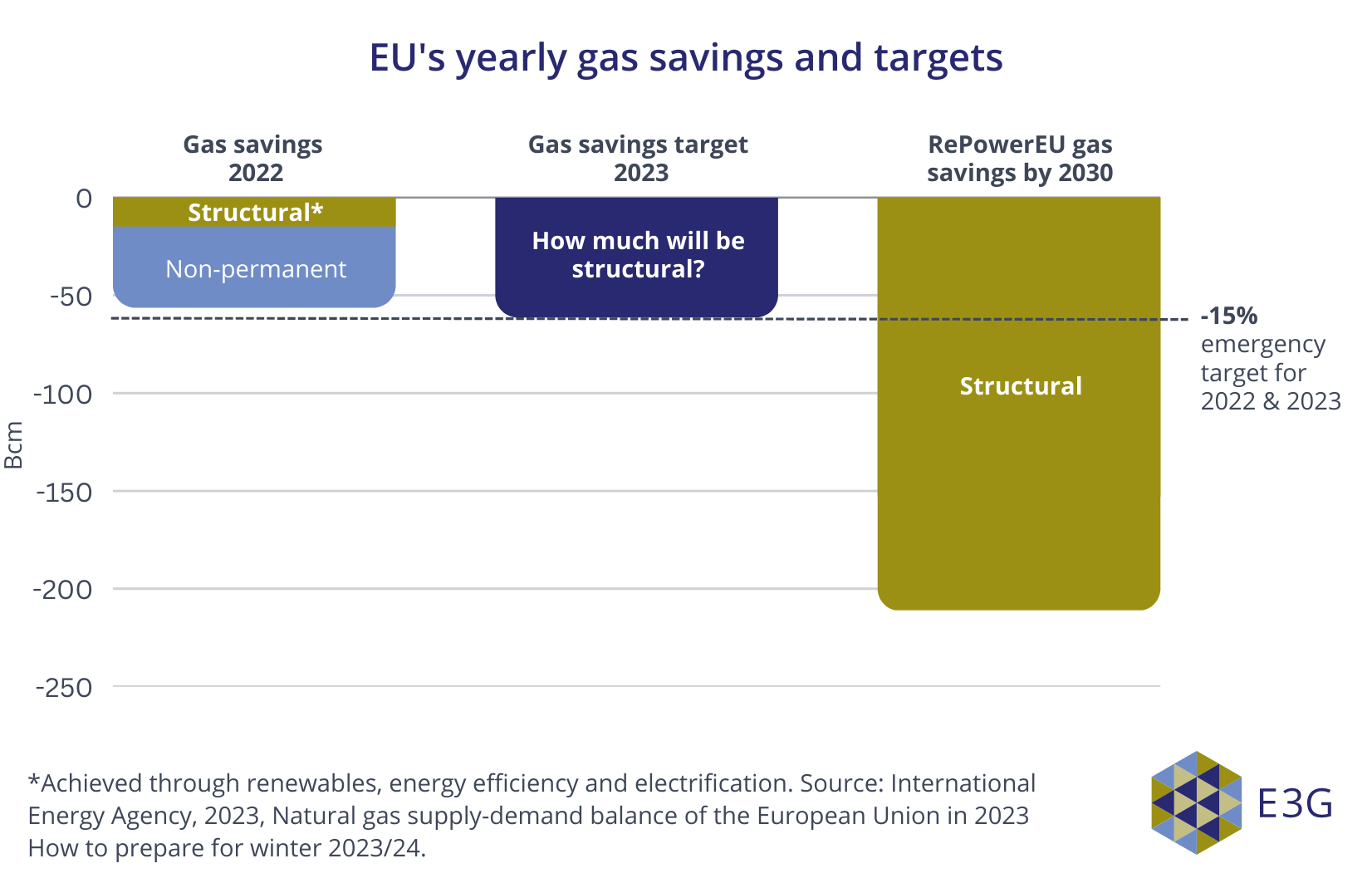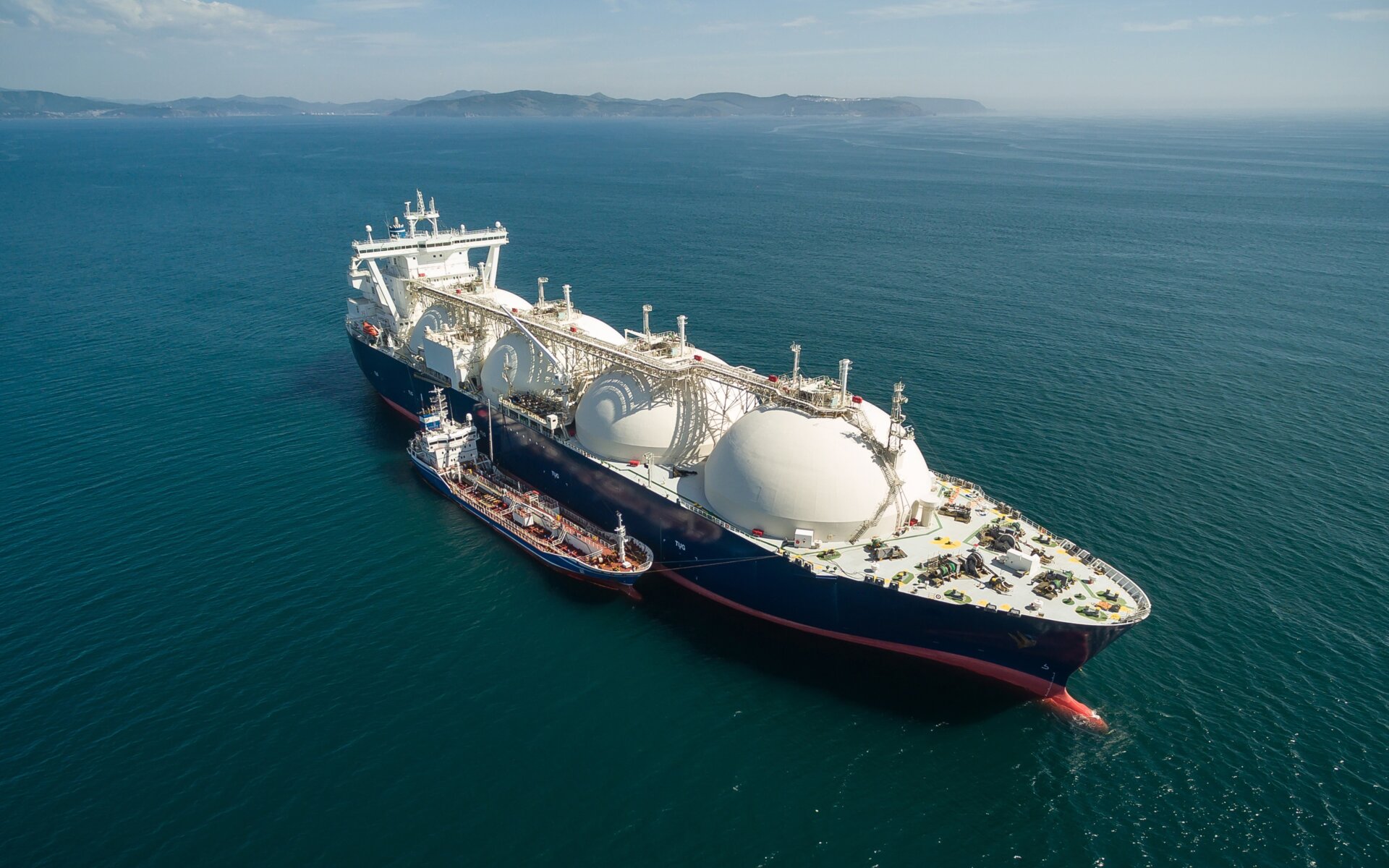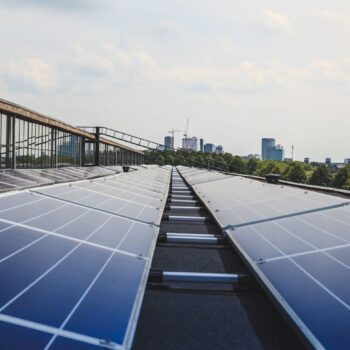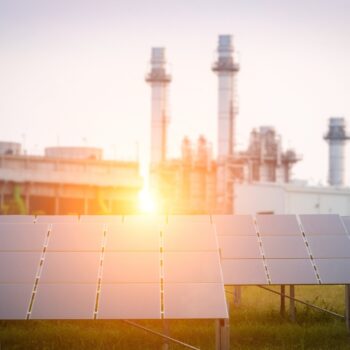EU member states and the European Commission have agreed to extend last year’s target for a 15% (60bcm) gas savings target to repeat these savings a further year. While necessary, this emergency measure does not put the EU on track to reach the 52% structural reduction of gas demand foreseen by the RePowerEU plan.
The Council also adopted its general approach on the gas package, securing some improvements compared to the Commission’s proposal but failing to prepare the EU for an orderly transition out of gas.
Story
Today, EU Energy ministers agreed to keep the gas savings target of last year and agreed on its position regarding the hydrogen and decarbonised gas market package.
The extension of the gas reduction target is a sign that the EU considers reducing gas demand a key tool for achieving security of supply and sufficient storage levels for next winter, but does not contribute to the RePowerEU plan, which foresees halving structural gas demand by 2030 compared to 2019. Nevertheless, the Greek delegation’s proposal to strengthen investments in the electricity grid discussed today is a sign that work on driving electrification and renewables will continue.

The EU managed to save 19% of gas demand from August 2022 to January 2023, and 13% (55bcm) over the last year. These gas savings were critical to getting Europe through last winter, but only around one quarter of the savings (14.5bcm) was achieved via structural solutions like renewables, electrification and efficiency – and thus permanent. Europe is still vulnerable to shortage risks next winter.
Energy ministers also agreed on technical improvements to the decarbonised gas market package, such as limiting the blending of hydrogen in the gas networks to 2%. However, they missed the political imperative to radically decrease gas demand by 2030. For that, upcoming trilogues will have to secure a robust governance system by ensuring an independent hydrogen system operator, obligations for distribution networks to prepare for decommissioning, and that blending hydrogen into the gas networks is kept to the minimum.
The ESABCC and the International Energy Agency have recommended shifting from crisis management to structurally tackling the energy crisis, and E3G set out four key measures to make it possible. The outcome of tomorrow’s trilogue on the Renewable Energy Directive will be crucial, as an ambitious target would be a boost to the necessary renewable energy momentum in the EU. The legislative discussion around the Green Deal Industrial Plan is also contributing to that momentum but is so far falling short on driving skills and industry decarbonisation.
Quotes
Rheanna Johnston, Policy Advisor at E3G said:
“We can’t just keep relying on emergency measures every year. The EU needs to step up their game if we want to avoid constant crisis mode and get to our 2030 targets. Structural reductions of gas demand through energy efficiency, electrification, and renewables are the answer.”
Raphael Hanoteaux, Senior Policy Advisor at E3G said:
“This gas legislation is still worlds apart from the current energy crisis and looks like a fossil from the past. Member states can be lauded to have at least protected consumer interests by securing the independence of the hydrogen network body from the vested interests of the gas industry. This now needs to make its way into the final legislation.”
– ENDS –
Available for comment
Rheanna Johnston (EN, DE), Policy Advisor, EU Energy Transition.
m: +32 (0) 492 97 8250 rheanna.johnston@e3g.org
Raphael Hanoteaux (EN, FR, ES), Senior Policy Advisor, Gas Politics.
m: +32 (0)496 205 903 raphael.hanoteaux@e3g.org
Notes to Editors
- E3G is an independent climate change think tank with a global outlook. We work on the frontier of the climate landscape, tackling the barriers and advancing the solutions to a safe climate. Our goal is to translate climate politics, economics and policies into action. About – E3G
- E3G, From emergency response to energy security in Europe – A way forward for 2023, February 2023
- IEA, Europe’s energy crisis: What factors drove the record fall in natural gas demand in 2022?, March 2023
- European Scientific Advisory Board on Climate Change, Addressing the energy crisis while delivering on EU’s climate objectives: recommendations to policy makers, February 2023
- For further enquiries email press@e3g.org or phone +44 (0)7783 787 863


